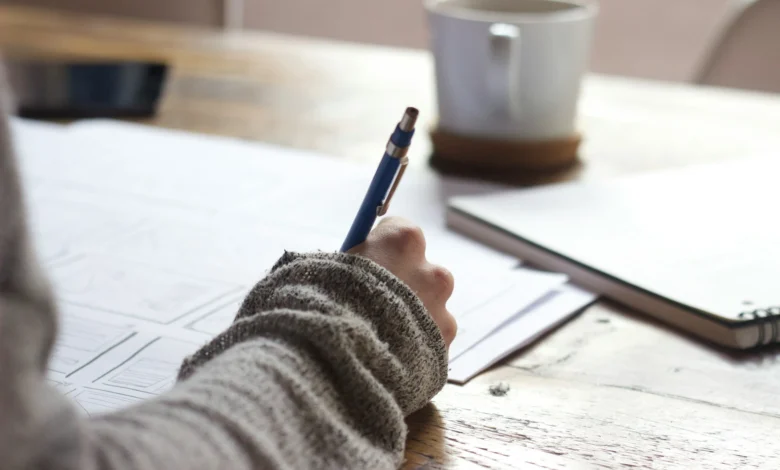
Eco-Friendly Study Tips: Preparing for GCSEs the Green Way in Liverpool
As GCSEs loom on the horizon, the pressure is on for students in Liverpool and beyond to buckle down and get their heads into their books. But in a world increasingly aware of our environmental footprint, how can we make sure that our study habits don’t just help us ace those exams but also do their bit for the planet?
Get set to discover some eco-friendly study tips that prepare you for your GCSEs and keep your conscience as green as Sefton Park on a sunny day.
Go Digital Where You Can
The first tip is straightforward: lean on digital resources as much as possible. The beauty of the digital age is that it’s never been easier to access study materials online.
From past papers to in-depth subject guides, websites, like Save My Exams, offer a wealth of resources right at your fingertips, reducing the need for printed materials while allowing you to practise with GCSE exam questions. Hence, you know just what to expect.
Plus, organising your notes and resources digitally means you can keep everything in one place – tidy, efficient, and definitely eco-friendly.
Embrace Second-Hand Books
There’s something almost magical about a second-hand book – it holds the history of those who’ve leafed through its pages before you.
In Liverpool, the hunt for these treasures can lead you to charming second-hand bookshops tucked away on cobbled streets or vibrant local markets that buzz with the promise of a great find. These spots are goldmines for students looking for textbooks and revision guides at a fraction of the cost.
By choosing pre-loved books, you’re not just saving some quid; you’re participating in a cycle of sustainability that benefits everyone. These books get a second chapter in their lives, you save money, and local businesses feel the love.
Plus, there’s the added bonus of stumbling upon notes or highlights from previous owners, offering unexpected insights or even answers to practice questions you’ve been pondering.
Study in Natural Light
Studying under the soft glow of natural light isn’t just about setting up a picturesque study spot; it’s a smart, eco-friendly choice. Natural light can boost your mood and productivity, making those study sessions less of a slog.
Liverpool, with its array of cafes adorned with large, welcoming windows and libraries that boast quiet corners bathed in sunlight, provides the perfect backdrop for students craving a change from their usual study environments. These spots offer a refreshing atmosphere and help you cut down on electricity use, embodying a perfect blend of practicality and sustainability.
So next time you’re diving into revision, consider moving closer to a window or venturing out to one of Liverpool’s sunlit spaces for an energising study session.
Use Reusable Stationery
In the grand scheme of eco-friendly habits, switching to sustainable stationery might seem small, but its impact is anything but. Imagine the mountains of disposable pens and single-use notebooks we could avoid if everyone made the switch.
Liverpool’s eco-conscious shops are great places to start looking for sustainable stationery options. Refillable pens, pencils made from sustainable wood, and notebooks crafted from recycled materials are just the beginning.
And why stop there? Get creative with repurposing scrap paper into flashcards or binders. It’s an approach that benefits the planet by reducing waste and sparks a bit of creativity in your study routine, making memorisation and note-taking a tad more enjoyable.
Travel Smart
The journey to your study destination or the local bookshop doesn’t have to add to your carbon footprint. Liverpool’s network of cycle paths invites students to switch from four wheels to two, offering a green alternative that’s both efficient and invigorating.
Cycling isn’t just about getting from A to B; it’s an opportunity to incorporate some physical activity into your day, something that’s especially welcome during intense study periods. The benefits extend beyond just fitness; cycling can increase your energy levels and improve mental health, making it easier to tackle those GCSE revision sessions.
Plus, navigating Liverpool’s scenic routes is a delightful bonus, turning a mundane commute into a mini-adventure. Next time you’re planning a study day, consider biking there. It’s a choice that’s good for your health, your wallet, and the planet.
Power Down Properly
We often underestimate the impact of small actions, especially when it comes to saving energy. The ritual of simply closing your laptop lid at the end of a study session might seem innocuous, but it’s moments like these where we have the opportunity to make a significant difference.
Properly shutting down your computer ensures that it’s not using unnecessary power while idle. Think about it as giving your device a rest, too, not just closing it off from your sight.
Similarly, chargers left plugged in are notorious for drawing power even when they’re not actively charging a device. This ‘vampire energy’ drain is like leaving a tap running — wasteful and unnecessary. By unplugging your chargers when they’re not in use, you’re taking a simple yet effective step towards reducing your energy consumption.
Make it a habit to do a quick sweep of your study area at the end of the day to disconnect any chargers. This small act, multiplied by days and then by the number of people doing it, can lead to significant energy savings.
Create a Green Study Group
The power of collaboration extends beyond just enhancing learning; it can also be a catalyst for adopting greener habits. When forming a study group, consider the eco-friendly potential it holds.
Sharing resources, such as textbooks, notes, and even digital materials, promotes a sustainable approach to studying and fosters a sense of community. It minimises the need for each person to print their own materials, leading to a considerable reduction in paper usage.
Choosing to meet in a single, central location is another strategy that significantly cuts down on carbon emissions associated with travel. It encourages carpooling, cycling, or walking, which are far more environmentally friendly than each person travelling separately. What’s more, such gatherings can become incubators for sustainable ideas.
Give Back to the Planet
Integrating eco-conscious breaks into your study routine is not only refreshing but can also be immensely rewarding. Liverpool’s community initiatives offer numerous opportunities to give back to the planet.
Participating in activities like community gardening, beach clean-ups, or tree planting allows you to contribute positively to your local environment. These breaks provide a much-needed respite from the intensity of study, allowing you to recharge amidst nature and engage in physical activity, which is beneficial for both mental and physical health.
Moreover, these activities offer the chance to connect with like-minded individuals who share your passion for the environment. They can be excellent networking opportunities, potentially leading to more significant projects or collaborations focused on sustainability.
Taking action in your local community instils a sense of responsibility and empowerment, reminding you that individual and collective actions can lead to meaningful environmental change.
In A Nutshell
Preparing for your GCSEs in an eco-friendly way doesn’t have to be complicated. With a few simple changes to your study habits, you can do your bit for the planet while getting ready to ace those exams. Liverpool offers plenty of opportunities to make your revision both green and effective, so why not give these tips a try?
You might find they make your study sessions more enjoyable and productive – all while keeping your environmental footprint to a minimum.







